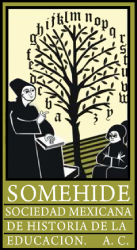Public education in the municipality of Campo Largo between 1820 and 1890: echoes of an imperial policy
DOI:
https://doi.org/10.29351/amhe.v1i1.267Keywords:
Education, history of education, Campo LargoAbstract
This article presents a research carried out on the History of Education in the State of Paraná, in Southern Brazil, with specific focus on the society of Campo Largo between 1820 and 1890. The information collected portrays the efforts to acquire the first teachers for the city of Campo Largo, which has its origin in a small settlement started in 1774, becoming a Parish in 1841, a Villa in 1870, and finally recognized as a City, separated from Curitiba, on November 6th, 1882. The permanence of families from the gold economy, along with the interests of families enriched by the mate herb economy, was a differential in the search for teachers for education in the area. This research was also enriched by the information provided by the work of James Portugal de Macedo, which portrays the memories of Professor Francisco R. de Azevedo Macedo, a great intellectual from Paraná who lived his childhood in Campo Largo. This work describes in detail his student life and his teachers, fundamental evidence that guided the research at different times. It is noticed that the concern of the public administrator with education is manifested in several moments, from the period of Brasil Império until Brasil became a Republic. The new ideas were reflected throughout the Brazilian territory, making that still incipient communities such as Campo Largo sought, within the permitted limits, access to existing forms of education.
References
Paraná, Arquivo Público Estadual. Arquivos esparsos da Cidade de Campo Largo (2019). Recuperado de: http://www.arquivopublico.pr.gov.br/.
Bassani, R. (2000). A capela do Tamanduá [Monografia de Graduação em História]. Universidade Tuiuti do Paraná, Curitiba.
Bloch, M. (2001). Apologia da História. Rio de Janeiro: Zahar.
Kubo, E. (1986). A Legislação e a Instrução Pública de Primeiras Letras na 5ª Comarca da Província de São Paulo. Curitiba: Secretaria de Estado da Cultura e do Esporte.
Macedo, A. P. de (2004). A erva-mate no Paraná, sua imortalização e a força política, econômica e social dos ervateiros em Campo Largo [Monografia de Graduação em História]. Faculdade Uniandrade, Curitiba.
Macedo, J. P. (1983). Professor Francisco R. de Azevedo Macedo e sua obra. Curitiba: Lítero-técnica.
Martins, R. (s.d.). História do Paraná. Curitiba: Editora Guaíra.
Saint-Hilaire, A. de (1964). Viagem à Comarca de Curitiba 1820. Editora Cia. Nacional.
Trindade, E. M. de C., e Andreazza, M. L. (2001). Cultura e Educação no Paraná. Curitiba: Secretaria de Educação.
Werneck, M. da L. P. (1978). Historia da Educação no Paraná. Curitiba: Secretaria de Educação.
Downloads
Published
How to Cite
Issue
Section
License
Todos los contenidos del Anuario Mexicano de Historia de la Educación se publican bajo una licencia Creative Commons Atribución No Comercial 4.0 Internacional (CC BY-NC 4.0), que permite compartir (copiar y redistribuir el material en cualquier medio o formato) y adaptar (remezclar, transformar y construir a partir del material) para fines no comerciales, dando los créditos a los autores y a la revista, tal como lo establece la licencia.
La política de acceso abierto y de licencias con “algunos derechos reservados” no niega la propiedad intelectual ni los derechos de los autores respecto a sus artículos, pues ellos son los titulares, en tanto que el Anuario Mexicano de Historia de la Educación no los reserva para sí ni para la institución editora, ya que se apegan a movimientos de acceso abierto como los Principios y Valores del Sistema de Información Científica Redalyc - Red de Revistas Científicas de América Latina y el Caribe, que pugnan por la eliminación de las políticas de embargo para que el autor retenga los derechos de su obra (principio número 8). Así como las políticas de acceso abierto del Directory of Open Access Journals (DOAJ).
Los autores podrán distribuir su propio material en cualquier otro medio o soporte, siempre y cuando sea para fines no comerciales, informando a los editores que el trabajo será publicado nuevamente y dando el crédito correspondiente al Anuario Mexicano de Historia de la Educación.
La publicación en el Anuario Mexicano de Historia de la Educación, por su carácter gratuito, no da derecho a remuneración económica alguna a los autores, ni a los dictaminadores.
Los lectores podrán reproducir (copiar), comunicar, distribuir o hacer obras derivadas de los artículos o colaboraciones publicados en el Anuario Mexicano de Historia de la Educación en los siguientes casos:
- Para fines públicos.
- Sin fines comerciales.
- Que se reconozca la autoría de la obra y se cite su origen con información completa: Apellido/s del autor, inicial/es del nombre/s. (año de publicación). Título del artículo. Nombre de la revista, volumen (número de ejemplar), página inicial del artículo-página final del artículo. DOI o URL (formato sugerido de acuerdo al estilo APA en su versión más reciente).
El cuerpo editorial del Anuario Mexicano de Historia de la Educación asumirá el compromiso de notificar oportunamente a los autores sobre cualquier cambio de ubicación de los artículos en el sitio (cambio de dirección URL o de conexiones para identificar el artículo).
Los autores, al enviar sus trabajos para su posible publicación, deberán tomar en cuenta los puntos anteriores, mismos que se contemplan en el Acuerdo entre autor y el Anuario Mexicano de Historia de la Educación.











